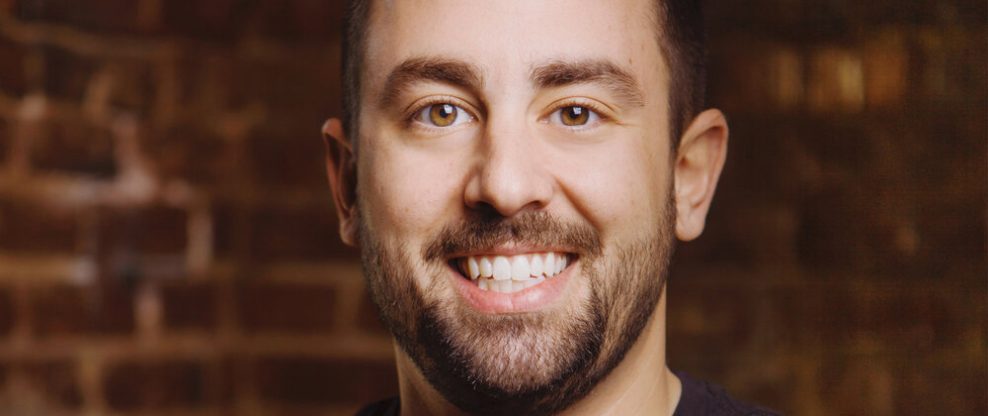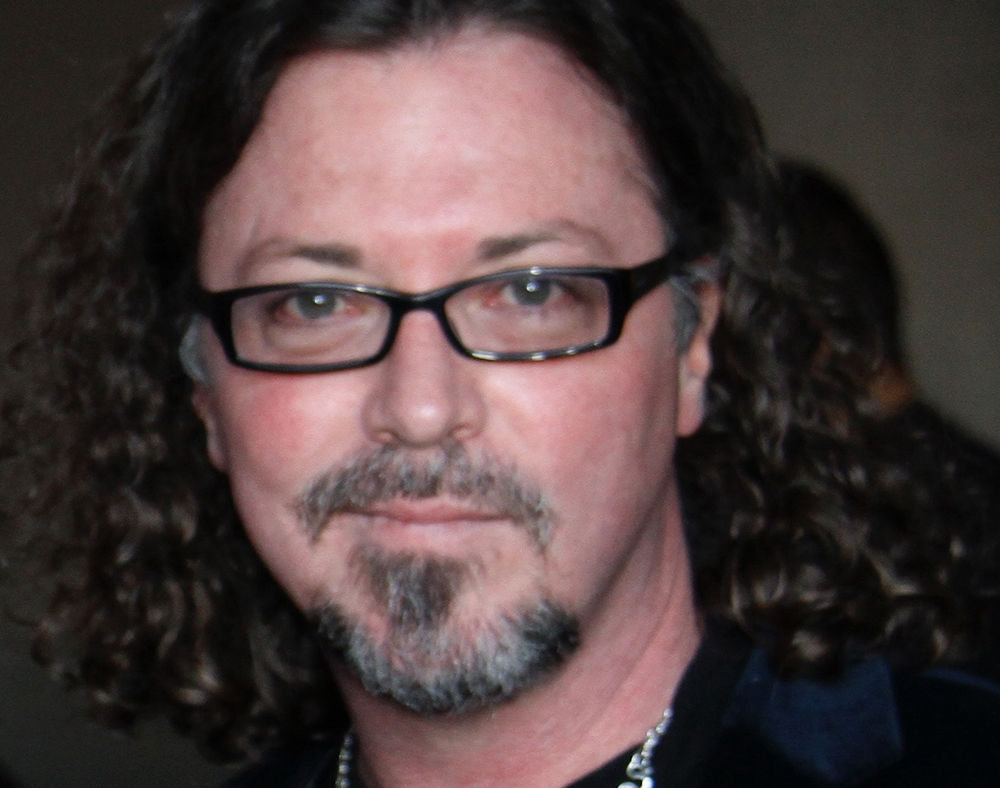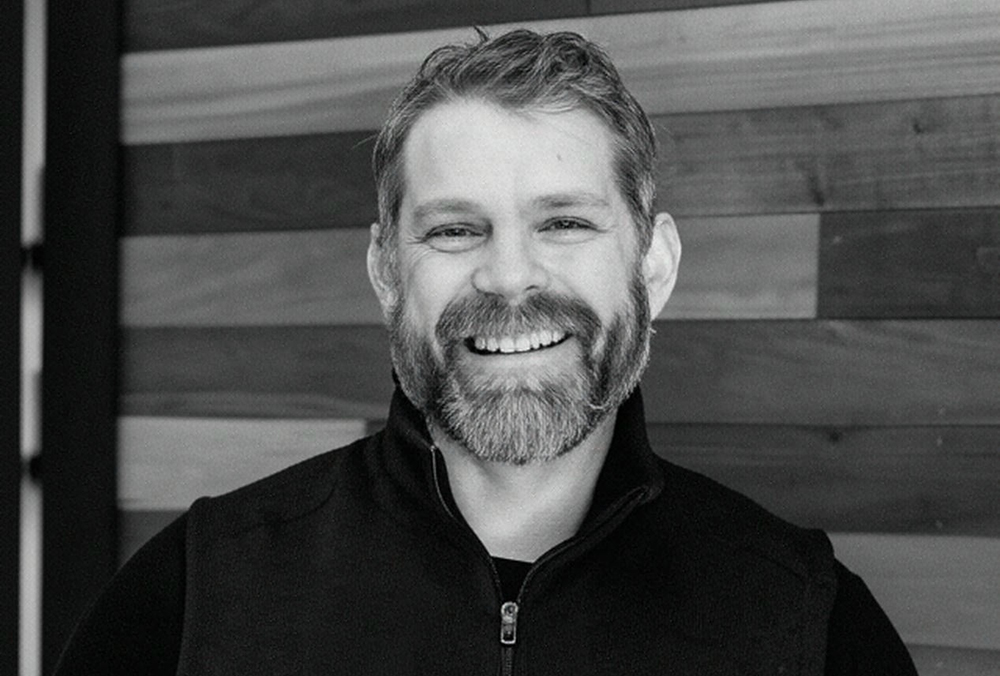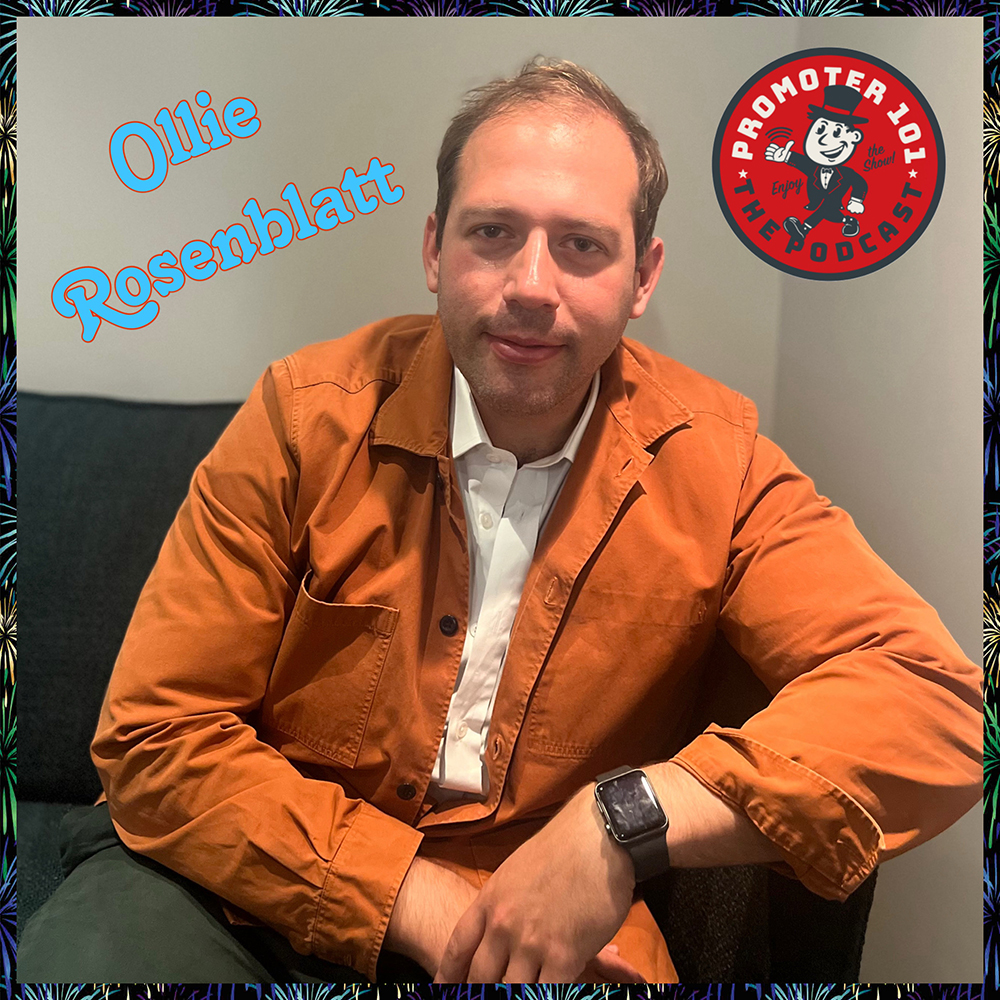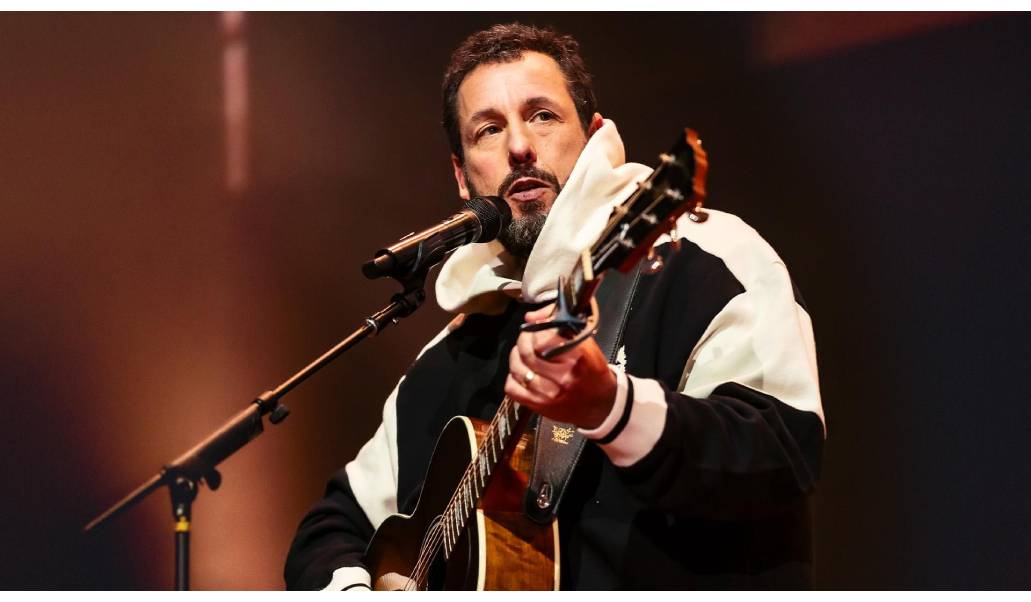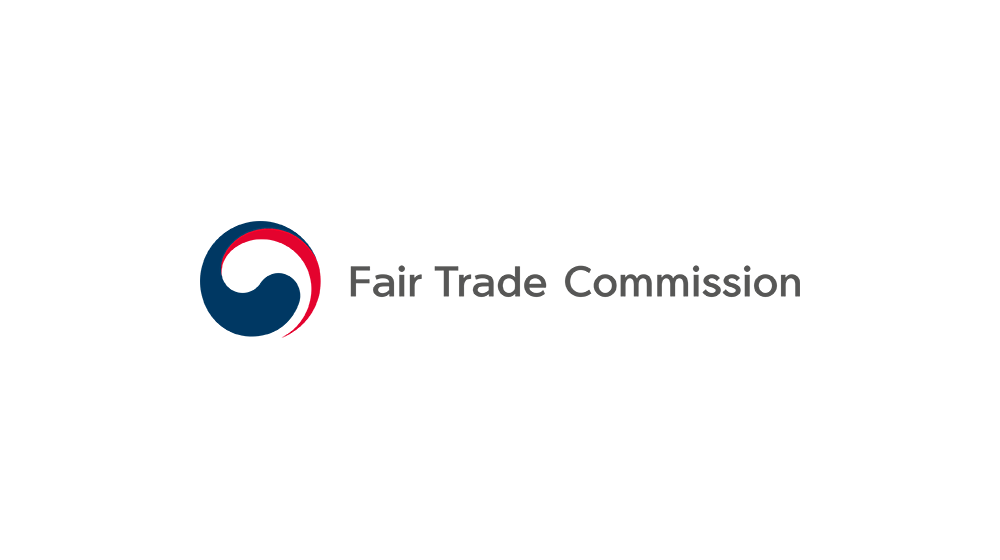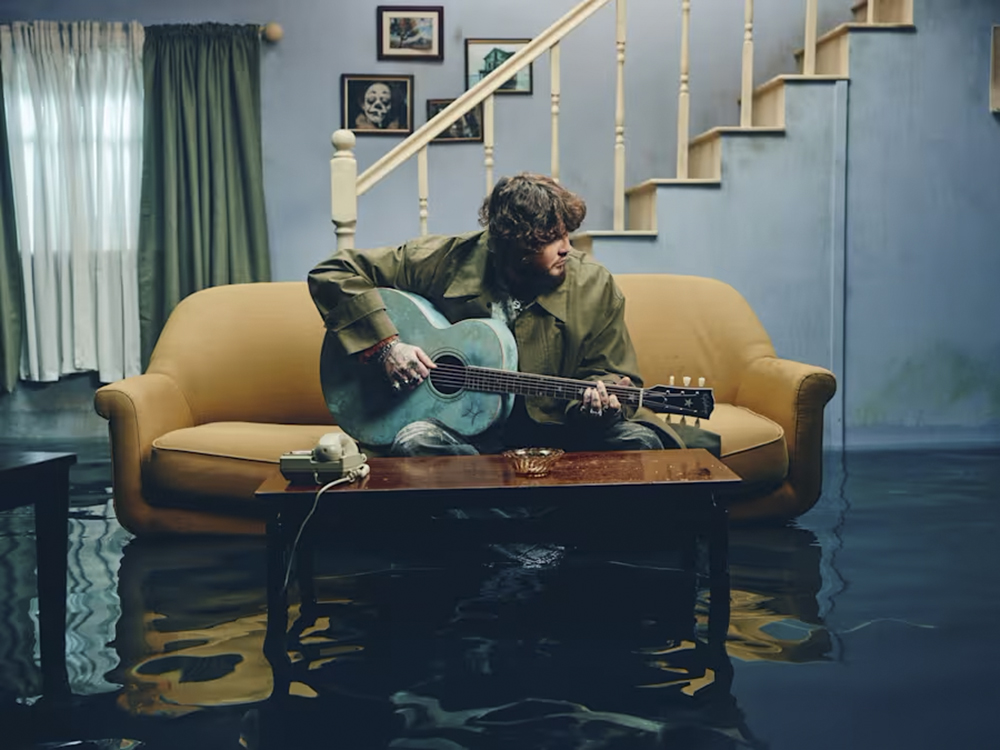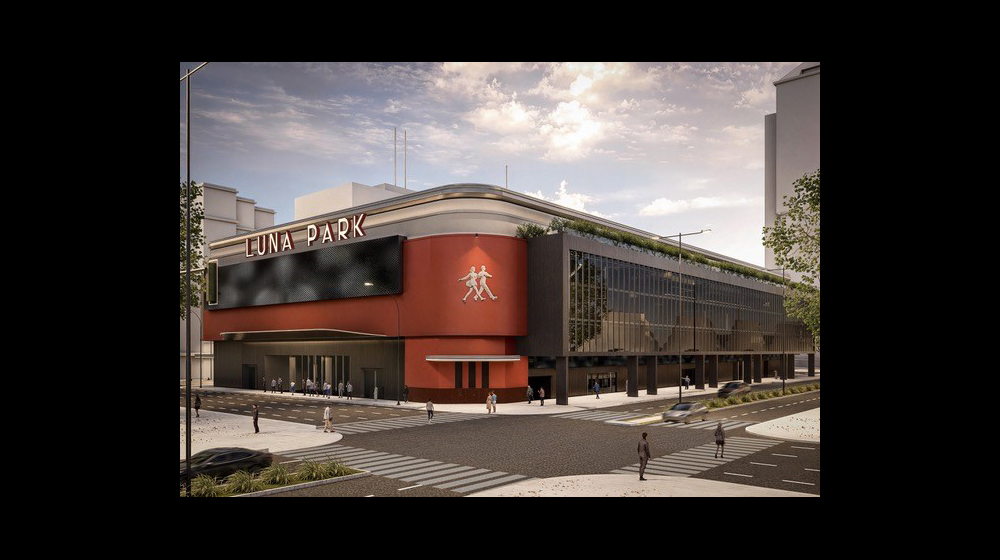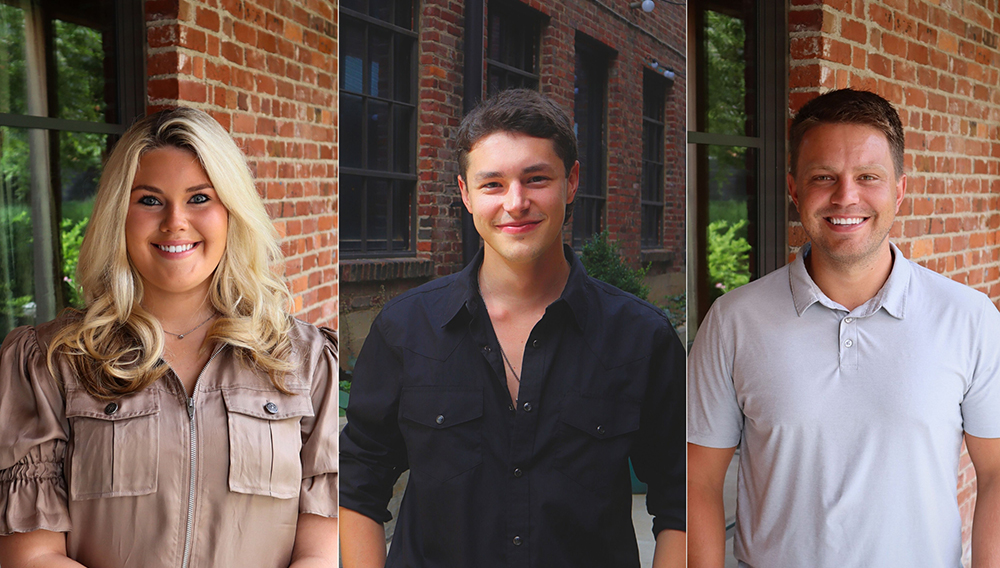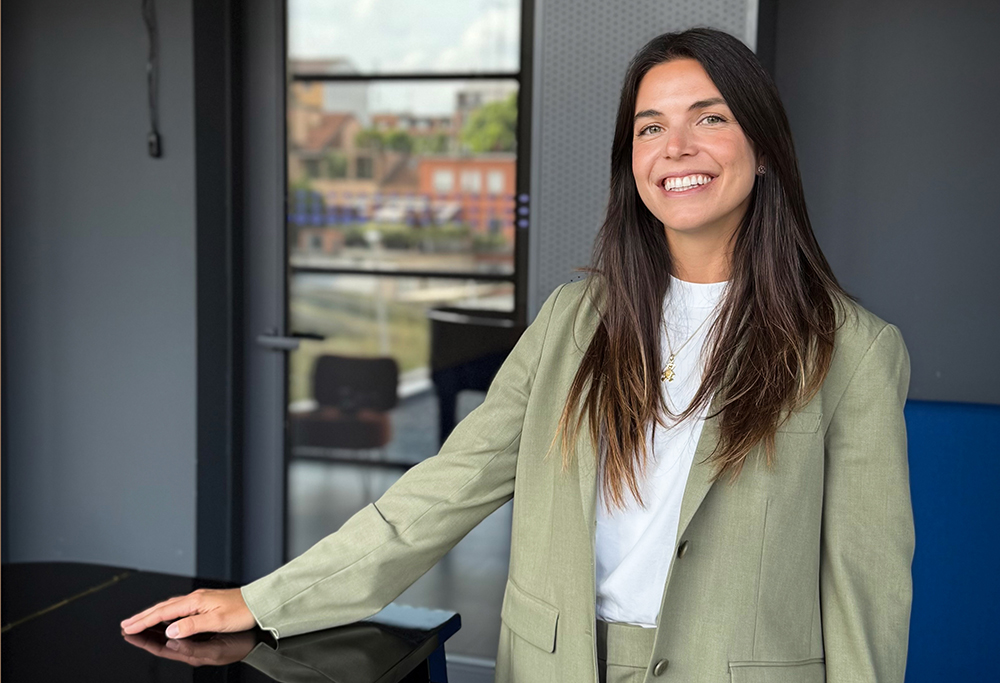This week In the Hot Seat with Larry LeBlanc: Chris Nardone, president, Venture Music.
Venture Music is a brash Nashville-based one-stop shop offering multiple tiers of digital services.
Formed as an artist management company in 2013, Venture Music was transformed by its president Chris Nardone to engage with an industry whose trends, and technology are so ever-changing.
With a young staff of 9, Venture Music breaks down its client offerings into three areas of service: Strategy, creative, and advertising. Its overall plan of action is to build, implement, and oversee marketing plans that are comprehensive and unique to each client to reach, and engage their fans across the digital landscape.
Partnered by Nardone, as well as Brian Massengale (creative director), and Dustin Boyer (media director), Venture Music specializes in working with independent clients and Nardone and his team hold a belief that the music industry no longer is a world controlled by gatekeepers, but an environment of intense internet-driven noise.
Cutting through the noise, Nardone emphasizes, requires targeted, consistent big picture marketing strategies that include his staff overseeing ad buys, direct-to-fan marketing to handling design work, and creating in-house promotions targeted to Facebook, Instagram, YouTube, Spotify, Snapchat, TikTok.
and other online platforms.
The Venture Music team researches, and identifies target audiences based on similar artists, interests, and demographics. They test ad campaigns week-to-week, communicate results with real-time reporting, and make adjustments to strategies together with clients.
Among Venture Music’s clients right now are Home Free, Jesse Colin Young, S+C+A+R+R, and iamnotshane. Notable projects from the past year include working with Moon Taxi, Meg Myers, Larkin Poe, and Stone Temple Pilots.
While at the University of Georgia (2006-2009) studying business and finance, you decided to take a course in music business at a time when the recording industry, side-swiped by file-sharing sites like Napster, Limewire, and BearShare, was imploding as it was coming to face a borderless global ecosystem defying control or monetization.
What the hell were you thinking?
(Laughing) I ask myself that every single day. Since as early as I can remember, my passion has been studying successful people. In 2009, there was a mass exodus from the music industry. I understood that disruption meant that there was opportunity, and also that lack of interest, and a lack of excitement, meant opportunity. That there wasn’t a lot of competition out there. Not any sincere interest in what was happening at all.
So an opportunity born from disruption.
I was just passionately looking for something to go all-in on. I grew up with parents who were hippies; who were playing their music for as long as I could remember. My dad helped me discover Radiohead when I was in 9th grade. As a 12-year-old, who has that level of appreciation for music, thanks to their parents? I was studying finance, not to get into the industry, but to understand how to be an entrepreneur, and to be smart about my career, and going off on my own. So I wasn’t scared about it (the music industry). I was excited about it because I saw all of the smart people, all of the people that had talent, going into other places. I was like, “Hey, I can kind of lead the charge here.” Naive thinking, but that was my thought process at the time.
Where did you grow up?
I grew up Hilton Head Island in South Carolina, a little vacation town on the coast. I was also born there. It’s about 20 miles from the Georgia border, and two hours south down the coast from Charleston. It is a beautiful area.
What did your parents do?
My dad was an entrepreneur as well. He was a landscape architect and ran his own business. That was very much the reason why I always had it in my mind that is what I wanted to do. My mum was a teacher.
As you know, there were missed years of opportunity for the recording industry to bulk sell music on the internet because of fears over the conversion of music to files. The recording industry tried to discourage consumers from copying music by suing alleged infringers, and trying to implement a secure digital watermarking scheme. Then as shortsighted licensing maneuvers by the recording industry hampered or curtailed new music services, consumers turned to video games, DVDs, and surfing the internet to occupy their time.
True, and it is still happening right now. I feel the same frustration now that I felt in 2009 when I was discovering all of this.
Of course, the name of the business game in the late ‘90s, and early ‘00s was in the dot-com space. So many of the companies from the dot-com bubble started out as a grand vision of being a more efficient way of doing business, promising to “change the world,” yet the dot-coms that had crazy-high valuations, divorced from any sort of profitability or rationality, were largely unprofitable. You just missed that business period.
I got to learn from all that. I was in class studying banking and financing as the great recession was taking place. I experienced all of that growing up, and to learn from the mistakes. For me, the things that were missing were very natural. It was about caring about the customer, and caring about the product that you are delivering to them and the connection that it is making; and not specifically on net income, and how much value you are creating for your shareholders. These are ingrained in us now, but I had the opportunity to learn about them while I was seeing them in place in the real world. I think that was incredibly important.
That was the era of prioritizing short-term gain.
True.
We are still in the era of prioritizing short-term gain or profitability over long-term survival in the music industry today. I’m not sure if it is retooling and innovating as much as it should.
I’ve been learning right now that retooling and innovating is stressful and chaotic and unreliable and risky. All of the things that people try to avoid. I understand it. My philosophy with what is happening with the COVID-19 pandemic is very similar to what happened with Napster. Disruption. You can resist, and bitch about it, or you can embrace it and catch the wave of what I see as an opportunity.
I’m hearing the philosophy of Seth Godin, your entrepreneurial and marketing hero. In 1999, he introduced the non-traditional concept of permission marketing in a book of the same name, which became the basis of your own marketing thinking. In a nutshell, permission marketing is the privilege–not the right–of delivering goods and services to consumers who want to get them. A marketing technique centered on advance consent being granted.
I’m sure it was in my marketing classes in school that I was introduced to Seth Godin. Took out sentance I’ve always loved people that can be guiding lights when it comes to thinking independently, and just following your own vision for things. I follow his blogs. I get his emails every day. You read a book, and you think about that world and that idea that this is that book. Still, we must remember how marketing changed. It (his writing) just reaffirmed my gut intuition about treating all of this differently and understanding that people are just inundated with advertising in 2020. If you treat that with respect, and you treat the connection to them as a request, and as something that requires permission, and that it is something that is meaningful, and not just a numbers game, it is an entirely different thing. But still, most people don’t think that way.
(A popular author and marketing expert, Seth Godin has written 19 books, and he is a prolific blogger. He’s also a serial entrepreneur and founder of Akimbo, a platform for online workshops, and the host of the weekly Akimbo podcast.)
You launched Venture Music in 2013, not as a marketing company, but as a management firm.
Correct. I don’t think I necessarily said, “Hey, this is a management company.” For full clarification, when I was in my senior year (at the Terry College of Business at the University of Georgia), I interned with two guys, Peter Jackson and Pete Dugas, who had been managing acts for, perhaps, the previous 10 years. Only later did I think, “I’m going to start this company, and be an entrepreneur.”
Their company was New Town Artists in Athens, Georgia, where you started in 2009?
Correct. Peter and Pete had just lost the (instrumental) band Sound Tribe Sector 9. They had been involved with them for years. They both had their own careers, and the company was basically sitting dormant. We basically partnered up in the sense that I was the only full-time person focusing on this company. So I had these two mentors. I had meetings scheduled. I had leads. I had all of the things that I needed to kind of kick the door in, and get started which was really important for me. I don’t think necessarily I had the competence to immediately be off on my own.
You did come to manage three acts, American Aquarium, Lera Lynn, and Delta Saints.
Correct. In the first two years, with their help, I found these three acts and a few others. But those three really got a little traction. They were making a little money. I put them on the road. I didn’t necessarily want to be in Athens but I was spending $300 a month on rent, and I had a beautiful house, and my friends were still there. So it was kind of a necessity because I was very, very focused on just being on my own, and not having a distraction, although I was catering weddings, and football games to make money. I made $14,000 the first year, I think.
I’m impressed. That’s not bad.
That was also with the help of the Blue Dogs, the band (formed in 1987 by Bobby Houck and Hank Futch) out of Charleston, South Carolina, that came up with Hootie and the Blowfish. A three-piece kind of folkie-Americana band. A connection through my partners and I was doing very similar work to what I am doing right now in a lot of ways. But then it was just, “I need a day-to-day manager.” Really, that job is still a lot of peoples’ job as a day-to-day manager. But then you also heard, “I need help executing social media campaigns. I need help editing creative assets, and I need help understanding what I need to do online.” That was my job as a manager.
Over the decades, the role of a manager has dramatically changed. The core part of the job is finding work for clients; live dates and, perhaps, a production, or a recording contract.
Decades ago, there was a handful of outside people managers had to retain, like an accountant or a business manager, a lawyer or a publicist, but being a manager was fairly straight-forward. Today, artists expect a manager to have expertise in many different parts of their career.
In 2017, you attended the EO’s Catalyst program at the Entrepreneur Center, led by Michael Burcham, and through the program, you saw the opportunity for Venture Music to pivot from being a traditional artist management firm to being a marketing collective that creates and executes digital strategies.
By this time managers were operating in a tougher, more competitive world due to the impact of industry-wide consolidations, label staff downsizings, and more diverse opportunities being available. All of which had led to managers delving into many non-traditional aspects of artist’s careers, including content creation, music publishing, audiobooks, and film, stage, and TV projects.
As well, managers needed to now understand social media, radio, music licensing, live streaming, music, and video platforms (including learning to boost Spotify’s algorithms) that all play within an artist’s career. Little wonder they hire companies like Venture Music.
Even working with a label, even when there are three people on the team that all have marketing in their job descriptions, this world is so diverse, and the set of responsibilities is so long that there are not that many examples of just a management label team doing all of this effectively. That’s happening more and more with time, but all of what you just said, is exactly my belief. My reason for pivoting was a core understanding of the flaw (of management) is that the first thing to go (working in tandem with others) is the personal connection, and the willingness to go above and beyond emotionally; as a friend and confident.
From 9 to 5, many of these people are doing 47 different things for their client. If an artist texts them at 6 o’clock they are not going to answer them. Or they are just going to cut them off. That part of the job that they ultimately are choosing not to pay attention to is, in a nutshell, what management is. That is why the job was created. “Okay, we have a creative person who only thinks with the left side of their brain. They are extremely talented, and we can make a lot of money from this. We need somebody to keep them in line. We need someone to keep this moving in the right direction.”
Two decades ago an artist off the road wouldn’t always try to reach a manager on the phone on a weekend. Or, if they did, they’d be apologetic, “I know you are at home with your family, and I’m sorry to call you, but we have a problem.” Today a manager is on standby 24/7, and there’s no apology from an artist for calling. And a manager best have the latest Spotify, and Soundscan data at their fingertips.
Yep, absolutely, but to me, that manager’s role in the bigger picture of things is really about instilling confidence, and being that support structure for the artist in order for them to remember when they are in that moment of not having an understanding of why they are there in that position. “Why am I talented enough to go on the stage in front of 2,000 people?” That emotional connection as a manager is super important.
But today in (in my role as president of Venture Music) I have spent two hours talking to you (the manager) about your social postings, and we spent another two hours talking about the marketing strategy, and then I had to talk to the publicist. I don’t have any room in my life for your comments, “Is this really the best single that we should be releasing?” That is what is being lost in all of this. It is the integrity, almost. I totally understand why, but it is also the reason why I abandoned the idea of trying to create this big, powerful management company because, to me, it is almost counter-intuitive.
Your office in Nashville is located in a historic building on 8th Ave South above The Basement, a well-known music venue that features indie bands.
We are two floors above The Basement. We have slowly over the past few years taken over the second floor, but we share the building with a few other music companies.
How much staff do you have?
I have a team of 9 now. So me and 8 others. The biggest blessing this year was hiring an operations director, Stephanie Edwards in March, somebody who could really get the internal side of all this together. We hired her just as all this (COVID-19 pandemic) started. We have been together four or five months now. Without her, I really don’t know how we would be operating. We have all of these co-operative tools that allow us to be on the same page in real-time. Not only have we effectively worked through the pandemic, but we are far more efficient which is incredible. Probably not as happy because we don’t get to see everybody.
Any of the staff working in your office space now during the COVID-19 pandemic?
There are three of us. Everyone has been remote, and we are social distancing.
On Thursday, August 6th, the Tennessee Department of Health confirmed additional cases and deaths related to COVID-19 across Tennessee. The health department reported 2,252 new cases, bringing the state to 116,350 total cases, and confirmed 42 additional deaths, bringing Tennessee up to 1,186 total deaths. Not good.
Not good at all. My wife Emily works in healthcare as a nurse practitioner in a walk-in clinic for Vanderbilt Health. So she is very much on the front line. Ever since they lifted restrictions in the last month, it has just been staggering how many people are coming through there.
Six weeks ago, Nashville’s Public Health Department issued citations for 14 Nashville businesses for being out of compliance with coronavirus public health orders. A photo of the crammed crowds at Kid Rock’s honky-tonk and steakhouse spread across social media showing hundreds of people — nearly all without masks — standing shoulder to shoulder listening to live music.
I will say that with Nashville, we tend to be in our own little bubble here in terms of being in the South, and being pretty progressive and liberal. I haven’t seen anything that really surprised me here locally but we went to Florida for a week to get away, and I went to pick up a few different things, and it was like, “Holy cow, there are 150 people in this place.” I only saw maybe 10 people wearing masks. You won’t see that kind of stuff in Nashville which is good.
Most people in Nashville wear masks in retail stores?
I would say 90%.
You are probably the first person I’ve heard describing Nashville as being “progressive and liberal.” Nevertheless, the city, especially East Nashville, has undergone a transformation that still embraces its history as a country music mecca while being an incubator for pop, indie rock and hip-hop with a vibrant arts scene, an increased culinary, coffee, and club culture, and an inexpensive quality of life. A hipster scene not unlike what Los Angeles was in the ‘60s and ‘70s.
It is all Nashville. It’s just not East Nashville. It is the entire town. I think it is changing. It is also, maybe, biased by my own industry dealings…
Probably more so by your age. How old are you?
I’m 32. But I think of how much Nashville has grown in the last 10 years or even 5 years.
According to The Tennessean, Nashville has grown by 100 people a day over the past year, and the population has jumped by 11.6% in the past 6 years.
I believe it. The real estate market certainly has not slowed down.
Is having Nashville as an American music industry center a great benefit? The local music industry supports more than 56,000 jobs, and has a $10 billion economic impact on the region annually. The success of the music industry there has created a vast pool of talented players, country and otherwise, who are in the region for the work. Most everyone you meet is either a musician or was a musician
Absolutely. It is the reason why I moved here in the first place. I understood that short of having some huge success story that what I could accomplish out of New York, L.A. or Nashville was pretty limited. I have probably been here for 10 years, and it is beyond the fact that I am networking here, and people are right around the corner, and all of that. It is the fact that we are Nashville-based, and just the image, and the understanding of what that means. If I was based in Charleston, South Carolina, which is where I would love to be, then that same brand, that same image wouldn’t exist. We would always be seen as outsiders.
You being in Nashville for a decade means that many of the music locals only now consider you to be in their business.
Exactly.
Anywhere you start a business, it’s going to be a gamble, but Nashville is weighed by issues that work together to keep new entrepreneurs at a distance. I’ve always found it to be the most locked-down music center in America. Far more so than New York or Los Angeles. It’s very difficult to break into its tight-knit music industry circle there, whether in country or another genre. A tough town.
A very tough town, but my whole philosophy is centered around gratefulness in a lot of ways if I can just take each of the opportunities I find. Moving here was a great example. Not knowing anyone, and just immersing myself here. I’m grateful for the fact someone will take 30 minutes to grab a coffee with me. I’m grateful enough about the meeting to talk about my clients and to suggest a deal. Even if this never happens, if I am playing the long game, even as hard as it is to genuinely reframe that internally, fast-forward 10 years later, and these same people that I met being so excited and passionate, even if they just thought that I was just enthusiastic in a 22-year-old way, it has paid off in so many ways.
Meanwhile, the impact of COVID-19 pandemic on musicians and music industry workers everywhere is massive. From lighting techs to truck drivers to sound engineers to background singers and all of the many people whose life’s work is creating musical moments, none of these people will be fully back to work until the virus is under control. Many artists have been paying band members and crew which they can only do for so long.
Absolutely. Larkin Poe was amazing about that. Their band and crew were out of jobs so they put a significant chunk of their live streaming revenue to help their crew.
I presume your company might now be returning to being busy because without touring acts have more new releases or they have increased their streaming activities or boosted their social media to reach fans. Two years ago, they might not have worked with someone like you because they had direct access to fans through touring. Have some artists returned saying “We are stuck. We need you.”
I like your thought process. This year is more indicative of why that is happening. Coming into this year I knew that it was a new decade, and 2020 in a lot of peoples’ minds it is a whole new era. I obviously could have never predicted what is happening right now. But through January and March, we saw a period of growth that I also could never have predicted, and obviously, I was excited about. But, as far as the real meaningful work in my mind, of taking something that has been established and proven, and taking it to the next level, those opportunities are pretty few and far between right now. Most people are either sitting on their hands waiting for things to get back to normal or they are financially in a position where, “We can’t afford to take this risk right now. We just have to wait for at least some sort of semblance of when life is going to get back to normal.”
Due to the COVID-19 pandemic, Venture Music lost 20 clients?
Yes, we lost 20 clients between April and the end of May. Losing tours was the dagger. Most of the projects that we were in a position to take from 6 to 8, whatever the level of establishment is, those ones are just spinning their wheels, and spiraling right now. They lost their touring income. It might have been a great year for them otherwise. Now they are sitting there hoping that unemployment (checks) comes through again. That is the most frustrating part of all this to me.
Have you had to let any staff go?
No. Amazingly, we have actually grown. Those early months of the year were so unbelievably amazing for us that we were way in too far over our heads. It was chaos. So in somehow within the slowdown, we have definitely picked back up. This past month has been a nice trending in the right direction.
Surely managers and artists have come to recognize as this continues that they have to do something?
We are starting to see that in the past month. “Okay, we have been sitting around for three months. More than likely we are not going to be back on the road until next year. We can wait until then and have nothing left or we can take what little action that we have.” You are right. People are being forced into saying, “We have very few options, what can we do?” But as far as the actual development work goes, and people’s willingness to say, “Hey, I want to take a risk and focus specifically on digital marketing to help get this project off the ground”— I am just floored by how many opportunities, amazing opportunities that are still out there. How successful our taking pretty limited budgets, and making genuine connections, a genuine foundation for a career versus, “Hey, take that money and put it into PR. Take that money and put it into radio.” Whatever options that you have there is no guarantee of success. That part of the business has been very consistent through the pandemic. I did not know what to expect. To just get by, and survive is a question for many people, “So, of course, I am not going to be developing my music career.” But we have not yet seen that as yet.
Who are your primary client contacts?
Most of our clients are managers. We get to pivot our strategy wherever it is needed. Recently, we have been developing a podcast with Jesse Colin Young which has been fun. He just re-recorded “Get Together” with Steve Miller. We did a record release for him last year (for “Dreamers” on BMG, his first album of new material in a dozen years), and we are sort of focusing on his catalog stuff. He’s been amazing about all of this for a guy his age (78). He’s really receptive to consistently staying active on the platforms that we need him to be in, and just being himself, and not overthinking it. These are things that are hard to teach, and he’s really an amazing case study for someone who just embraces all of this.
The company works with artists from all music genres?
Yes. Good music is good music to me.
Still, specific genres have to be worked in this or that silo. It can’t be a scattershot strategy. You have to operate within separate genre-based silos.
Correct. Well, it’s important to have a passion, and an understanding for the music, and the fan base. We have people on the team who have their own tastes, and if somebody coming to us to work with in having that (first) conversation, usually it is clear who is going to take the lead. But it is important to me that to not pigeonhole ourselves. If we said, “We are this Nashville-based country marketing company.” That is a pigeonhole that I don’t know if you could ever escape. Because we don’t deal with gatekeepers, we didn’t build a business model based on our networks, and our ability to tap into them. The company doesn’t have to be genre-focused as much as (clients) need to be dealt with by people who understand that genre. If somebody came to us, and said, “We had no idea that this Scandinavian death metal market existed, and how in the world do we do (marketing for) that?” I still might take the opportunity. Digital marketing strategies I can access anywhere in the entire world at a moment’s notice. It is just an understanding of where that audience exists, and what they care about, and how we can tap into that. I love how flexible all that is. It always frustrated me as a manager to feel that the only opportunities I had were based off of what I was currently doing. Like, “You don’t understand hip-hop. You have three Americana acts.” That doesn’t exist in the work now, and I love that.
When you take on a client, what are the digital touchpoints you trust?
As far as strategies?
Yes.
Most people are coming to us looking to focus specifically on Spotify growth. “Hey, I’m releasing a track, and I feel that I am not reaching the people that I can reach. We have no idea where to start other than hiring a company that can get us the playlists.” So it is usually using that as a jump-off point for other things. We usually try to help people understand that, “We can help you funnel more listeners to Spotify but really what you can get out of that is a genuine foundation.”
Usually, we are also focusing on Facebook, Instagram, and TikTok connections. YouTube use, of course, is lumped in there with Spotify streams. The connections on those platforms, as far as being a Spotify follower, and a YouTube subscriber are extremely important to us. At the same time, these platforms don’t really provide the value to the fan to necessarily to engage action. So we are always trying to creatively say, “Okay we need to actually game the system here. We need to encourage people to subscribe on YouTube, and to follow on Facebook. But we have to give them a reason with a contest or a pre-saver or something.”
Venture Music’s focus is expanding a client’s fan base, not monetizing their activities other than selling tickets and merchandise?
Correct, but it is that Holy Grail that we are changing. Today is a good example. We’ve have had two different team meetings about different things and really at the core of what we are trying to figure out in both of those cases is, “Okay we have a great success story. In one case, they have a couple of million TikTok followers. A substantial following. The other has, maybe, 600,000 monthly followers on Spotify.” With both cases, if I were to roll out some kind of pre-order or merch campaign, something other then asking for a conversion or a sale, I am not all that confident that we would do all that well. Yes, it’s about trying to spread the message further. Get that connection. Get the foot in the door. But what happens from there is the most important thing. It’s a process, and it’s an investment ya-da, ya-da. It’s different for every project, but the finesse comes from understanding the project and understanding the fan base, and understanding where the line exists. “Okay here is the right way we should try to generate the first $1,000,” versus wasting a lot of time.
With Larkin Poe (comprised of sisters Rebecca and Megan Lovell) this summer probably doesn’t work releasing an album a week before the pandemic. They had an international world tour to support the record release, and in two week’s time the rug was pulled out from under us. It is understandable that there is still an opportunity here. There are still fans that were really excited about seeing these shows, and interested in getting in deeper with this artist, but now they are stuck at home for the next three months. So how do we pivot?
(Larkin Poe’s new album, “Self Made Man,” was finished just before the Nashville tornadoes gave way to a pandemic that sidelined their tour plans. Rebecca and Megan have spent this time growing tomatoes, and like many others, live streaming performances from home.)
Live music won’t likely come back in full force until 2022.
I totally agree with you. But that’s okay. We still have the same opportunities. How do we actually do that? Conceptually, we understand that it (digital marketing) can happen but how do we do it?
While the COVID-19 pandemic means that there are fewer customers, and they may not be willing to spend as much money, customers and opportunities can still be found.
Find your audience.
The COVID-19 pandemic has created a perfect storm for live streaming opportunities, and many artists are simulcasting on YouTube, Facebook, Twitter, or Instagram. Yet, much of the industry is missing opportunities at Twitch, other than the hip-hop community and gamers.
They are into that.
For years, Twitch existed as a video streaming platform for gamers and coders primarily, but today it has been transformed into a prime social platform for all types of content creators, with musicians front and center. The coronavirus lockdown has driven streamers to Twitch in their multiples of millions, with hours watched on the platform increasing by 50% between March and April. As the platform grows, musicians have started to use it to earn back some of their lost income.
Find your audience. There’s still an audience.
Who are very bored, and very very much in need of entertainment. And very unemotionally fickle. The connection that we provide in the music industry is so much in that nourishment, or in that or that satiation. Okay, you might not necessarily be able to profit from it (music) right now, but there’s an opportunity for you to take advantage of where people are at mentally. You provide a product that helps them to make sense of what’s happening and helps them to remember what is important. That to me is what is important in this moment.
Then there’s TikTok which is introducing new non-traditional stars. Like Addison Rae Easterling (19) its top-earning star, bringing in $6 million in earnings in the past year, thanks to her 53.9 million followers, her makeup line, and subsequent deals with American Eagle, and Spotify. Runner-ups, sisters Charli D’Amelio, 16, and Dixie, 18, have over 60 million TikTok followers; and then there is Loren Gray who has 46.1 million followers and sponsorship deals with Revlon, Hyundai and Burger King.
TikTok’s latest obsession is “Mi Pan Su Su Sum” that originated from a 2010 Kellogs advert in Russia tagged on more than 45 million videos.
(Recently TikTok announced two significant deals with the music industry.
The first deal is a global licensing agreement, with the U.S.-based National Music Publishers’ Association which permits TikTok to use the repertoire of NMPA members who opt-in to the deal, while those same NMPA members receive a share of advertising revenue from the platform.
TikTok also renewed its existing licensing agreement with Believe, owner of TuneCore, to distribute over a third of all music releases, by volume, across the world.
Finally, TikTok is threatening legal action against the United States after President Donald Trump ordered American-based firms to stop doing business with the Chinese app within 45 days. TikTok has said it will “pursue all remedies available” to “ensure the rule of law is not discarded.” Trump issued a similar order against China’s WeChat in a major escalation in American’s trade stand-off with China.
Now comes news Snapchat’s parent company Snap Inc. has signed music licensing deals with Warner Music Group, Warner Chappell, Universal Music Publishing, Merlin, and a number of members of NMPA. Snap is testing a new feature in Australia and New Zealand that lets people add music to their Snapchat posts. Snap is also building a catalog of music clips for people to choose from.)
TikTok is an exploding phenomenon, but so many in the music industry still view it as this gimmicky kids’ platform.
It is further proof of what we were just talking about. It is resistance to disruption. It is even further in favor of the consumer than Napster was. For context, I really am not a TikTok user. I surround myself with people who really understand these things from a very technical, and fan connection level. But I understand that the platform is very content-focused, and it is very resistant to advertising and marketing in general just because it’s all about seeing what somebody can uniquely create. They’ve figured out the perfect way to encourage native content creation which really in a lot of ways solves the marketing problem that Facebook now has of, “Okay now I have lost the actual value that existed in this for me before.”
In that way, we lost iTunes because it was a one-off buy. With Spotify, YouTube, TikTok, and other streaming platforms, there’s ongoing curation and engagement.
Absolutely. Part of the reason why I think the industry is so resistant to TikTok is that it’s so consumer-friendly, and not advertiser-friendly. It is so resistant to the idea of marketing tactics. If it is not native feeling, you are going to get crucified on the platform. You are going to get ridiculed off of the platform.
As in how good marketing must differ from advertising.
Yes, absolutely. Coming into conversations like this, it is always tough for me to distill down what we do. I usually start by clarifying the differences between marketing and advertising. But in most peoples’ minds, they are the same term. In the industry, those two things need to work together in a very real way in real-time. But, yeah, that in a nutshell is kind of what our goals are with all of this which is about connecting the line between…who are the people formulating the plans, and understanding the audience, and who are the people actually implementing them, and making sure that it (a digital strategy) is efficiently working.
It is so inefficient within the industry. An on-going headache for managers.
I could talk to you for hours about how convoluted the job as a manager has become.
Does the Venture Music team lobby playlist curators for increased play on behalf of clients?
Our whole world is pivoting constantly in this space. A year ago, I hired Dustin Boyer as media director and he is now my partner. He was a full-time artist manager and had really been paying his bills as an independent third party playlist curator. He had created a business on the side. He was somebody that people could come to as a streaming promoter. He had developed relationships with curators all over the world. He understood that the playlists were real, and he had a connection to curators through either Facebook, literally, they were just messaging each other back-and-forth, or they had established a relationship on email or whatever it was. There was an actual connection to the curator. But that world very quickly turned into a pay-to-play game last year where every great opportunity required a $25,000 to a $150,000 payment. We started playing that game for a while, but we realized that it was taking away from our advertising budget. Also, Spotify started going out and searching and destroying those people doing that.
I don’t know if Spotify has quite controlled pay-for-play. It has become more sophisticated in being set-up.
I supported the idea of, “Okay I have a curator here who, through his skill, has developed a network of playlists that people care about. So, if I am paying him $50 for a placement on this playlist, that means that he can do this (curating work) full-time. So I supported that idea. As the competition grew, and as the botting and just the ability to fake those streams came fully into scope, that world became a lot less reliable. I think Spotify definitely sat on their hands and watched this happening, and still is doing that but, at the same time, it is so tough to control that ecosystem because it is such a huge opportunity for the artist. It is the #1 goal for most people. They see those million streams as being the jumping-off point that they need to go and do XYZ that they have in their minds.
(Last year, Spotify, under pressure from investors to boost advertising sales, and prove it can turn a profit, introduced a tool called Marquee, asking record labels and artists for money to advertise their songs within its app, arguing that they’ll reach new fans and increase their popularity. Spotify cites Marquee driving the success of new releases by Georgia, Cold War Kids, and The Weeknd. I don’t see this helping independent artists.)
I understand that you are now analyzing massive flows of digital information on a daily basis in order to develop dedicated marketing strategies, and that it is very difficult to get the get the needed playlist support from the DSPs (digital service providers) at a specific time. And then if the skip rate is high, you know then that you have to push it in a different way.
I’ll have you know that is the rabbit hole that I’m in right now. We are trying to cue up a story for what started as a blog series. We are kind of sitting on it right now. But just talking about the effect that bots have had on the industry, and major labels have encouraged the process because it is entirely a numbers game for them. If you want to hit #1, and roughly you are going to get 600,000 streams, and I can go out and buy another 400,000, and get to that number placement. Algorithmically, there’s not much of an impact because there so much other information being fed. I already have 87 official playlist adds on this track. I don’t necessarily need to be worried about the impact that it is making. So it is shitty to me that you can go out and hire a service that puts a piece of software in place that can manipulate that #1 song. That is a very, very real thing.
PledgeMusic going out of business last year was a kick to the groin to the indie community
They still owe me $6,000. Me personally. I was tied up in all of that. I was a staunch supporter and believer. This is something I’ve grappled a lot with in the past year. I’ve done a few crowd-funding campaigns this year, but the one that sticks out for me was Futurebirds. They were putting a release campaign together during all this PledgeMusic stuff. We really did not have a Plan B in terms of what other platform we might use. They weren’t excited about using Kickstarter and I understand why musicians don’t love that idea. To me, it’s the disclosure of the finances. If we can take those components, and re-create it through an existing Squarespace site, and through the existing social media platforms we proved a few times now that we can meet and exceed what we would have done with a PledgeMusic campaign without having to spend 15%, and without having to necessarily say that this is a crowdfunding campaign. It is just treating the pre-order differently. What we distilled down is what the fan gets out of it (a campaign) is that they are part of the team. That they can make an impact, and they can see that impact. That is what everybody will be doing, or are kind of doing already.
Venture Music recently partnered with Ingrooves, the distribution company acquired by Universal Music Group in 2019. How is that working out?
I don’t know yet. We are just getting our first three singles up right now. In my mind, it’s the same as any other opportunity. It is going to be exactly what we make of it. We’ve got great resources. We have got access to a great team. If we add them into the mix with what we are doing, and if we are feeding them like we can, and that they can use that in a useful way, it is closing the loop in a real important way.
You believe that a major label isn’t a necessity for an act today?
I feel at a developmental stage that it’s a hindrance.
Major labels aren’t keen on signing an act during their developmental period. They don’t want them day one or day two. Maybe day three when the act has some touring and social media traction.
I saw developmental in terms of Moon Taxi. We had a chance with Moontaxi in 2017 where we could be part of the team and be a success story that all of us could dream of. The first thing they did with their album (“Let the Record Play”) was to sign a deal with a major, RCA. That, to me, was that they were looking to RCA to develop them to a point where they could be an international success story. “We’ve reached the limit of what we can do.” But in doing that I think that Moon Taxi removed what was their integrity that was really driving the whole thing in the first place. “Now we are treating it as commerce. We are treating it as a team, and a board of directors. Everybody has a voice an opinion.” That is a story that I have seen played out so many times.
Today so many independent bands are signed aligned or have licensed their music to a major.
The people who were onboard with Moon Taxi for the first 15 years, they felt (with the RCA affiliation), ”Okay, the band has made it. We can get off the gas now,” versus Futurebirds being able to continue the same (independent) cycle. American Aquarium did the same thing. We raised $150,000 in their last release campaign in 2016. That was a major label budget for a band that size with no strings attached. But bands can continue that process to the end of time if they do it right. My philosophy is when you have 13 different voices, all of which are very qualified and all have the experience to make something happen, it usually doesn’t happen because there’s no guiding light anymore. It’s removed
You sound like a member of Radiohead in 2007 leaving EMI, the label that discovered them and turned them into one of the biggest bands in the world.
You are right.
A major label affiliation is pivotal to acts seeking international careers. There are a few exceptions of indie acts breaking in international markets on their own. So that route can be workable.
It can still be done. The majors are the only organizations in the industry that can get things to that level. I’m excited about the day when three companies don’t just control the ability to do that. With most of what we are doing, as soon as a major gets involved our growth and development becomes stagnant, and our ability to keep moving, and doing things, and testing and seeing what is reacting come to a standstill. And that is frustrating.
Larry LeBlanc is widely recognized as one of the leading music industry journalists in the world. Before joining CelebrityAccess in 2008 as senior editor, he was the Canadian bureau chief of Billboard from 1991-2007 and Canadian editor of Record World from 1970-80. He was also a co-founder of the late Canadian music trade, The Record.
He has been quoted on music industry issues in hundreds of publications including Time, Forbes, and the London Times. He is a co-author of the book “Music From Far And Wide,” and a Lifetime Member of the Songwriters Hall of Fame.
He is the recipient of the 2013 Walt Grealis Special Achievement Award, recognizing individuals who have made an impact on the Canadian music industry.

